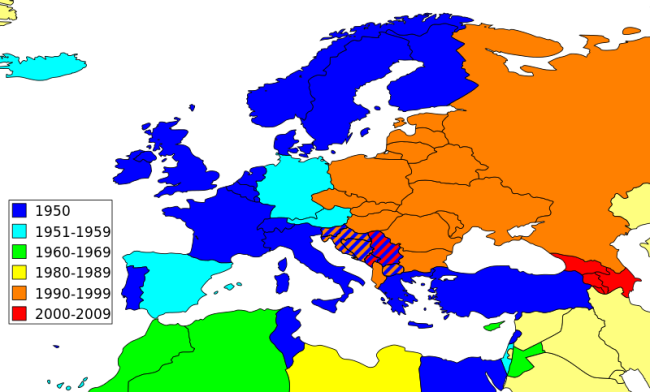Completed research project
Ever since the existence of electronic media, its transgressive character has triggered great fascination but also fears. Political attempts were accordingly substantial in the twentieth century to immunise one’s own territory where possible from within against external influences and to enlist the media for the integration of mostly nationally-defined communities. Of interest here is the relationship between the inherent transnationality of modern mass media on the one hand and attempts at the creation of identity and political containment on the other hand.
Transnational Media Relations in Europe: International Program Exchange and Cultural Transfer as Component of an European Media Culture

Bildinfo
Members of the EBU. Map: ZanderSchubert in der Wikipedia auf Englisch, European Broadcasting Union members, CC BY 3.0
